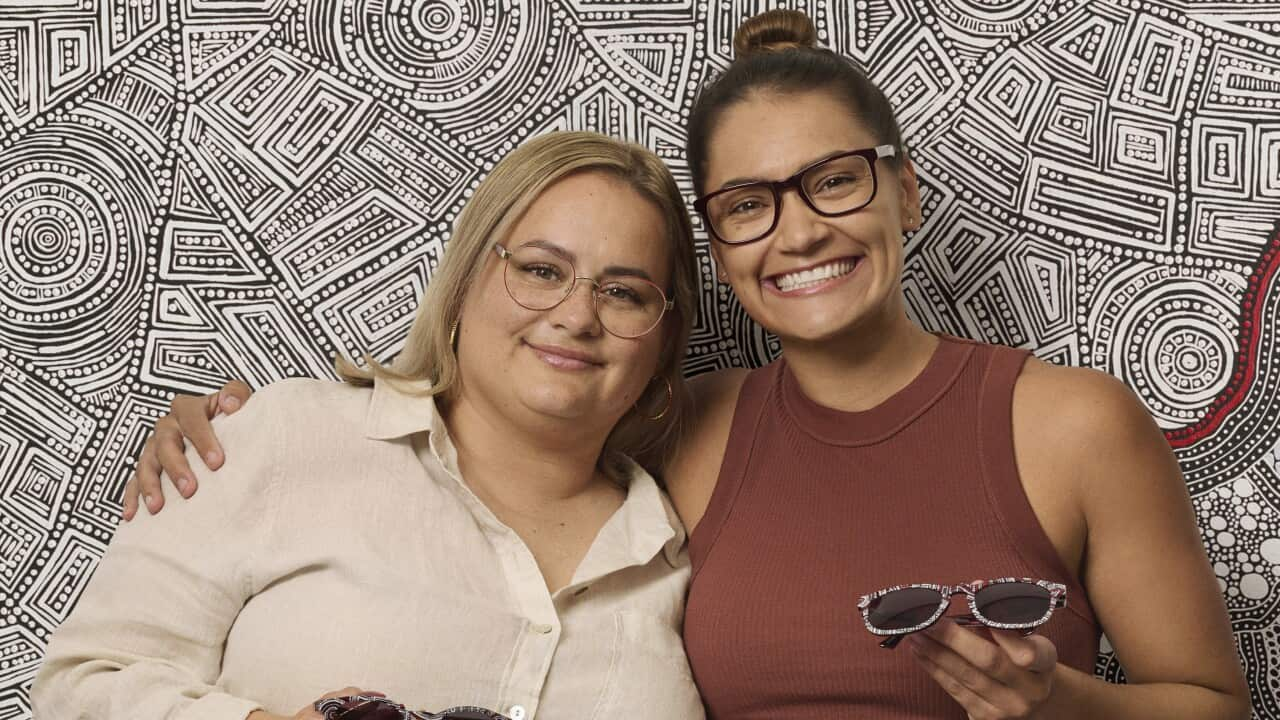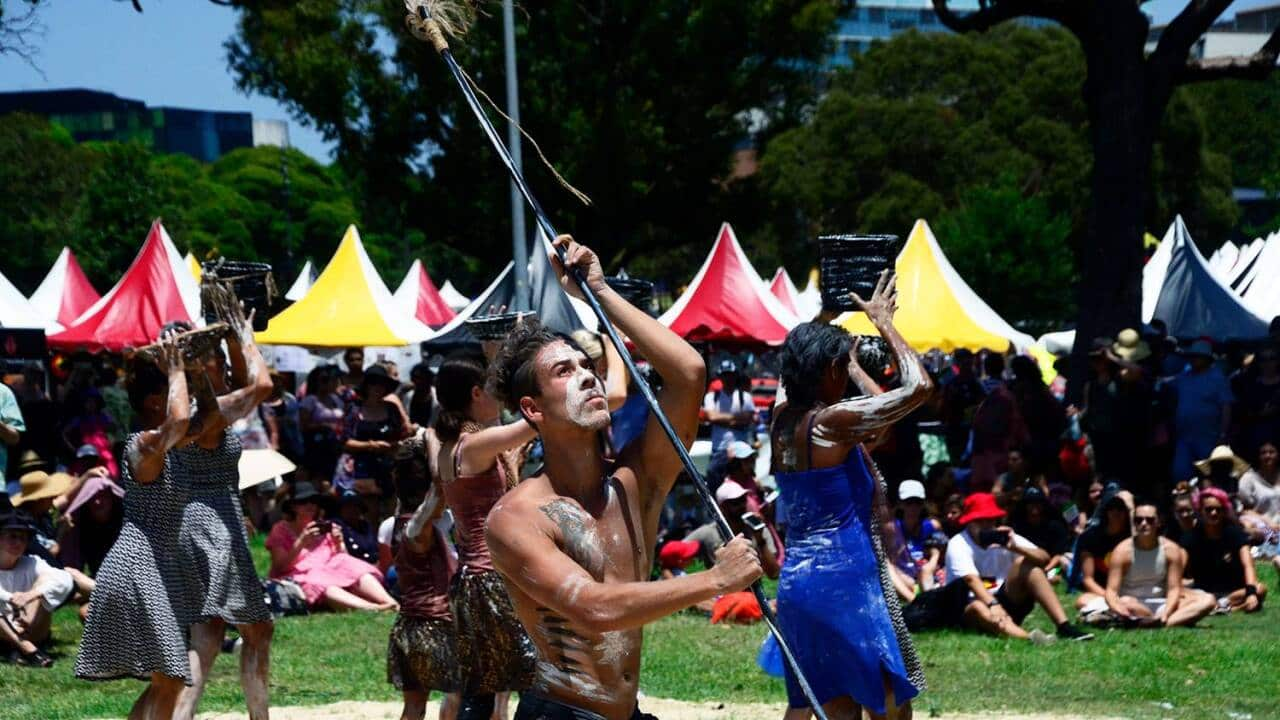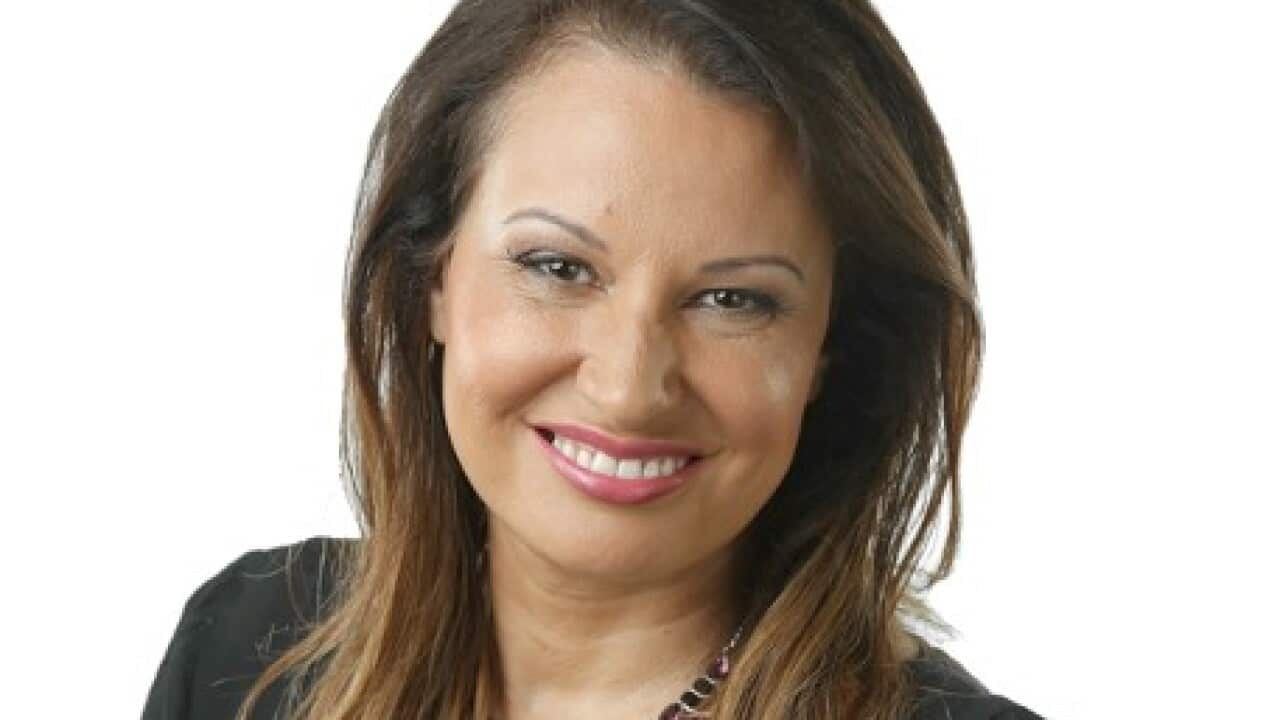Gurindji Waanyi First Nations Artist, painter and sculptor Sarrita King talks to NITV Radio about artwork My Country My Story: a designer glasses for Specsavers that she created with her sister Tarisse. $25 from the sale of each frame within the range will be donated towards The Fred Hollows Foundation’s Indigenous Australia Program to help make eyecare more accessible for Aboriginal and Torres Strait Islander People.

Patient getting his eyes checked in Darwin Credit: Michael Amendolia/Photographer: Michael Amendolia
LISTEN TO
Aboriginal and Torres Strait Islander adults are three times more likely to have vision impairment or go blind than non-Indigenous Australians. Alison Hill from Fred Hollows Foundation discusses the situation.
07:22
Yet over one-third of Aboriginal and Torres Strait Islander adults have never had an eye exam. Also currently, 90% of vision loss experienced by Aboriginal and Torres Strait Islander Peoples is treatable or preventable and Specsavers and The Fred Hollows Foundation are aiming to change this.




